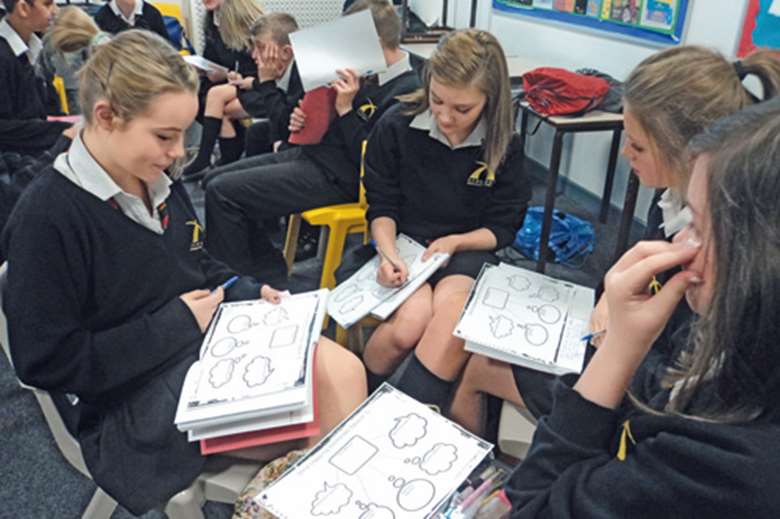Good Practice: How a restorative justice scheme helps pupils to resolve conflict
Friday, May 13, 2011
The restorative approach championed in the Writing Wrongs project has seen internal exclusions reduce by two-thirds at one school trialling the multimedia resource pack.

Project Writing Wrongs
Funding The Writing Wrongs pack costs £250 for schools and £395 for youth offending teams (YOTs)
Purpose To support the use of restorative practice in schools and with young offenders
Background
Restorative approaches have long been used in the justice system to help both criminals and victims come to terms with the impact of an offence. Similar techniques are now being used in workplaces and schools to help prevent and deal with conflict.
The Writing Wrongs programme, written by Andy Winters, a YOT education representative in Lancashire, is designed to help teachers and youth justice practitioners to pass on these techniques to young people. "We found there was a need for a resource for teachers who had done restorative practice training and wanted to take that into the classroom," says education consultant Lesley Parkinson, who is helping to develop the programme.
Action
Writing Wrongs is a multimedia resource pack with separate versions for secondary schools and YOTs. The six-session pack for schools includes a range of interactive activities and real-life case studies plus worksheets and a CD-Rom. The programme was tested at two schools in Burnley and is now being used in other schools in the north of England and further afield.
Restorative approaches - such as meetings between perpetrators and victims - can be used to deal with incidents such as bullying and disruptive behaviour to help the parties involved understand what has happened, make amends and get back on track.
But the ultimate aim is to arm students with the knowledge and skills to deal with conflict that crops up day-to-day and with a view to preventing problems, explains Parkinson.
Key to the programme's success is that it is easy and enjoyable to use, believes Winters. "It really captures young people's imagination and is interesting for both young people and practitioners," he says. The YOT pack, which is now being used across Lancashire and in many other YOTs in England and Wales, features five sessions. The case studies are based on real incidents. "Young people really begin to think about what they have done and understand how many people are affected," says Winters. "When they write to victims the letters come from the heart." It can lead to further work like meetings between young offenders and victims.
Outcome
Helen Campbell, assistant head teacher at Sir John Thursby Community College in Burnley, which trialled Writing Wrongs with Year 9 pupils in personal, social and health education lessons this academic year, said that both pupils and staff enjoyed using the resource. "The students were able to engage with it immediately and it promoted a lot of discussion," she says.
The school introduced a restorative approach a year ago with staff undergoing training as part of a wider policy. Internal exclusions have reduced by two-thirds this academic year and restorative techniques have been used to deal with issues including a serious incident involving a group of Year 9 boys. A meeting was staged with the students, victims, families and police. The fact that the students had done the course meant they were better able to understand the harm they had done and the consequences. "Since then the lads have not been involved in anything else of that nature," says Campbell.
An evaluation found that 99.8 per cent of students felt they were very well or quite well equipped to use restorative approaches in school, while 85.5 per cent felt they were quite well or very well equipped to use them outside school.
Fifty-seven per cent of pupils felt they had learned a new skill through the Writing Wrongs programme. The plan is to develop a programme specifically for primary schools.
If you think your project or programme is worthy of inclusion, email supporting data to andy.hillier@haymarket.com
IMPACT OF THE WRITING WRONGS PROGRAMME
66% Percentage fall in the number of internal exclusions at Sir John Thursby Community College since the Writing Wrongs programme began
99.8% Percentage of students who felt very well or quite well equipped to use restorative approaches in school
88.5% Percentage who felt they were quite well or very well equipped to use them outside school
57% Percentage of pupils who felt they had learned a new skill
Source: Writing Wrongs/Sir John Thursby Community College





